The move, which provoked a heated debate among football historians, was essentially made to ensure that Sir Alex Ferguson would receive a full international cap in time for his 80th birthday. He duly came to Hampden in October 2021 and was presented with his cap at half time in the Scotland v Israel match, a gesture which was loudly cheered by the capacity crowd. Other players in the squad have been similarly recognised, and have appreciated the gesture.
But back in 1967, the tour party was unequivocally not the full national team, and Scottish FA secretary Willie Allan made this abundantly clear. Although Scotland had just beaten world champions England 3-2 at Wembley, most of the regular players were not available, with Celtic and Rangers in European finals and various other call-offs.
Allan was supported by the Glasgow Herald, which stated 'Under no circumstances should they be labelled a Scottish international team. Our newly-won prestige, both at international and club level, is too precious for that.'
This stance annoyed some of the opponents, notably the Australians who wanted to test themselves against Scotland's stars, but the tour went ahead anyway under the guise of a Scotland XI.
It has to be said that the ultimate decision on which Scotland matches are deemed to be worthy of a cap is the prerogative of the Scottish FA, even if they don't meet FIFA standards. There are several instances in the past when a match did or did not count for the award of a cap, sometimes for fairly arbitrary reasons.
However, in upgrading some of the 1967 matches, the Scottish FA seem to have slipped up when deciding which ones. Despite claiming to have studied their archive, they either failed to do the research properly or were poorly advised.
The first five games versus Israel, Hong Kong and three against Australia, were all against full national teams, whereas the last four games were not, the opponents being New Zealand Under 23s, an Auckland Provincial team, Vancouver All Stars and Canada Amateurs.
Yet Hong Kong was ignored in the 'upgrading' review, despite them being FIFA members and selecting essentially the same team which played in the Merdeka Cup that year.
It is probably too late now for the Scottish FA to change their decision, but the inclusion of the Canada match has thrown up a historical conundrum: Joe Harper's five goals on his debut, contributing to a 7-2 win.
If that is correct, he equals the Hughie Gallacher's record for goals in a single Scotland match, and when he was interviewed recently Harper was understandably proud of his achievement. At first glance there seems little doubt about it, as every Scottish newspaper reported his five goal haul. Harper himself has been interviewed about his feat.
However, there were no Scottish journalists on the tour, so every report for every match was supplied to our newspapers by local agency reporters rather than people who knew the team. They were accepted at the time but further research, using archive sources, raises several doubts about the tour statistics, and in particular Joe Harper's haul.
Most notably, the Scottish FA kept its own record of the matches, and their minute book contains a surprise about this game. It states that Harper scored three, with the others being an own goal by Kauck, one from Bobby Hope and two from Willie Morgan.
Admittedly, the Winnipeg Tribune went along with Harper scoring five. So you have two men, presumably sitting alongside each other in the press box, but not conferring on the goalscorers.
Nevertheless, it is hard to escape the conclusion that Harper did not score five, and that this was a fiction which only gained currency through an agency reporter.
Therefore, I have little doubt that Hughie Gallacher's five-goal haul against Ireland in 1929 should remain as the record for a single Scotland international.
This was not the only tour match in which a question mark remains over a goalscorer. In the opening game, Scotland beat Israel 2-1 in Tel Aviv with a late winner, but who scored it could be one of three players, as even the Israeli press could not agree.
Harry Hood was the man according to the Scottish FA minutes and Israeli paper Ma'ariv. Eddie Colquhoun scored according to reports in Davar, the Dundee Courier and the Press and Journal. And it was Alex Ferguson in Al Ha-mishmar and La Merhav in Israel as well as the Glasgow Herald, Evening Times and Evening Express back home. Which was correct? Unless film of the match turns up, we may never know.
Meanwhile, the Scottish FA has yet to update its online archive to include the 1967 tour, over two years after the decision to upgrade the matches to full international status. So for now, the six players who won caps during the tour but at no other time are not even mentioned: Alan Anderson, Jim Townsend, Alex Ferguson, Harry Hood, Hugh Tinney and Harry Thomson. And Joe Harper remains on four caps, two goals.
I have a small vested interest in getting this right this, as I set up that archive when I worked at Hampden two decades ago. It dearly needs attention to make it more accessible and to correct a number of mistakes.
Click here to read the full statistics of the 1967 tour, as far as they are known.
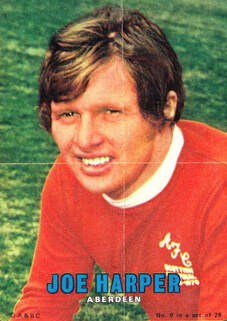
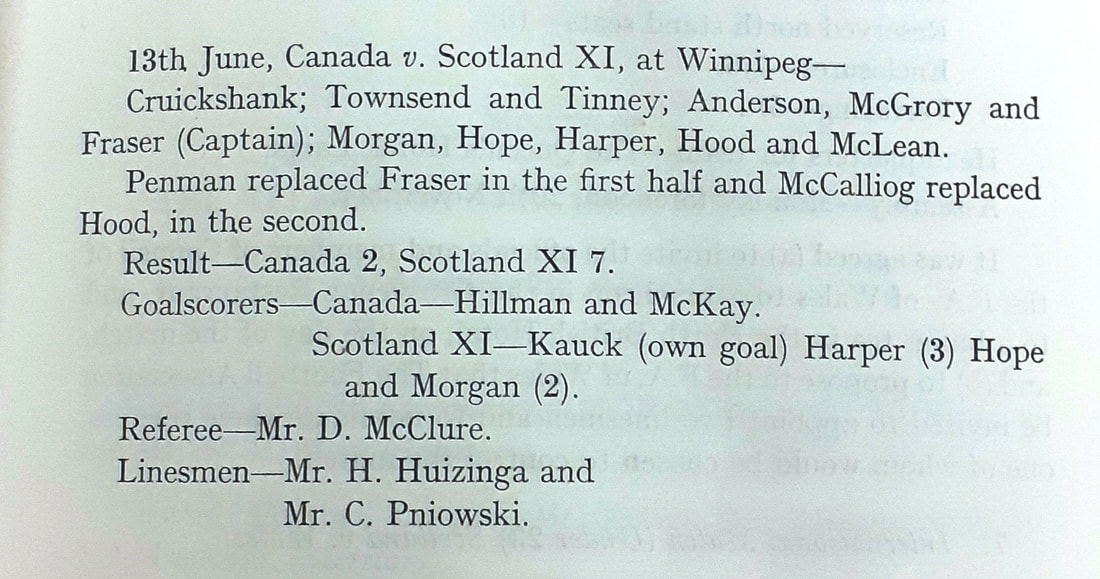
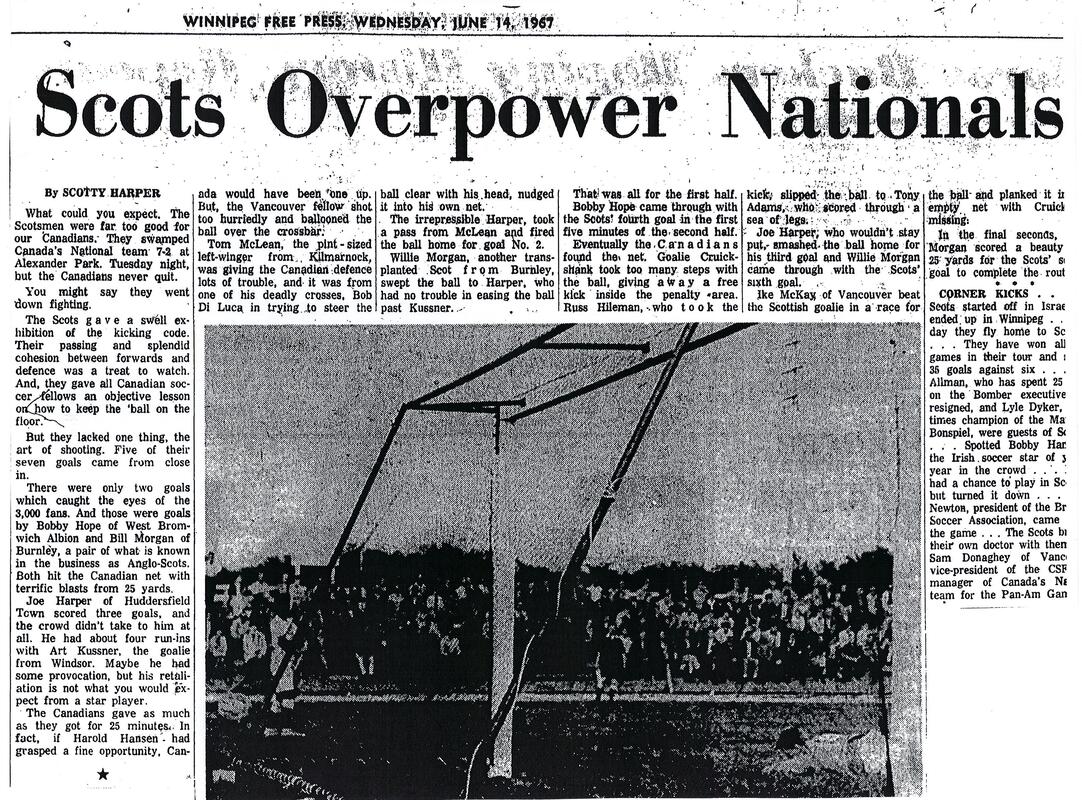
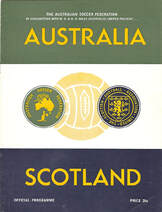
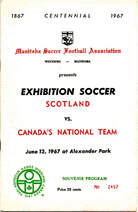
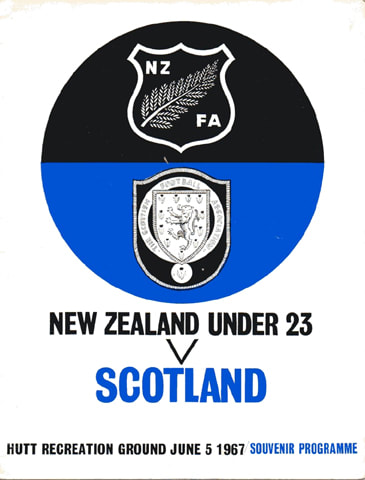
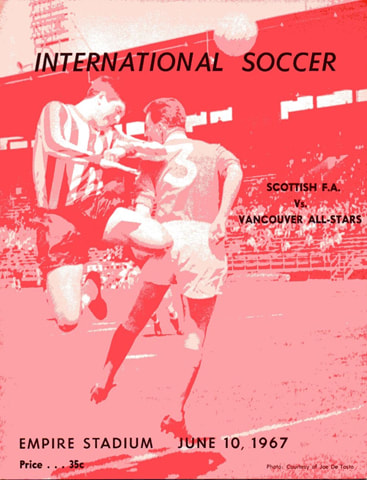
 RSS Feed
RSS Feed